Our Faculty has made a major contribution to the development of Science and Engineering, boasting significant historical figures who have not only shaped our university but also propelled scientific discovery and technological advancement. We take immense pride in our history and heritage.
From pioneering breakthroughs in nuclear physics to redefining the landscape of computer science, each chapter of our history has left an enduring impact:
- Manchester was the world's first industrial city, and this spirit of innovation runs through our Faculty;
- We are the birthplace of chemical engineering;
- Our significant duo, Andre Geim and Konstantin Novoselov, whose research earned the Nobel Prize in Physics for isolating the remarkable material graphene, exemplify the spirit of innovation and excellence that defines our community.
Explore our storied legacy
Our legacy shines with brilliance. We are accompanied by a notable list of more than 20 Nobel Prize laureates from our University, with roots that trace back to our commitment to advancing women in the field of science and engineering. We take pride in our past, and forge ahead into the future defined by curiosity, creativity and collective aspiration.
.jpg)
Ernest Rutherford
Between 1907 and 1919, Ernest Rutherford (pictured here with fellow physicist Hans Geiger) laid the groundwork for the creation of nuclear physics, and in 1917, became the first person to create an artificial nuclear reaction in laboratories at the University.
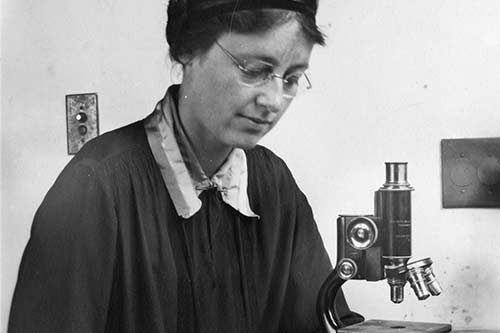
Kathleen Drew-Baker
A lecturer in botany and a researcher at Manchester from 1922 until her death in 1957, Kathleen Drew-Baker is revered in Japan as 'Mother of the Sea' after her research helped save the sushi industry. Every year in Japan, a festival is held in her honour.
Read Drew-Baker's dedication to research
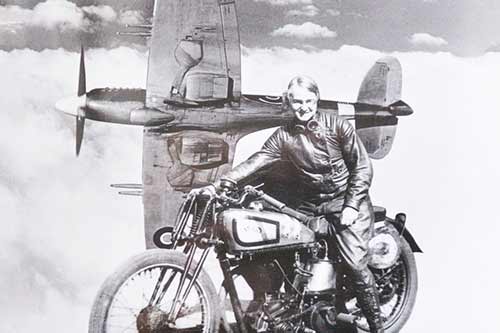
Beatrice Shilling
An MSc Mechanical Engineering graduate at Manchester in 1933, Shilling suggested important adjustments to RAF planes during World War Two that transformed performance and helped them to match the Luftwaffe. Beatrice was later awarded an OBE for her work.
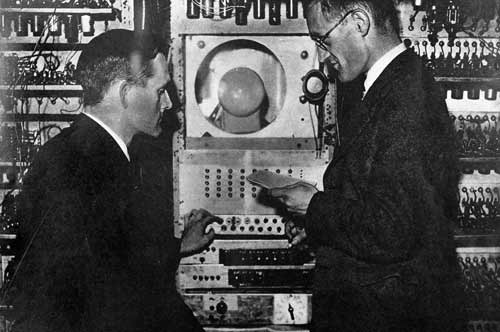
FC Williams and Tom Kilburn
A landmark development in the history of computing took place at Manchester. Built by Tom Kilburn and FC Williams, the Small-Scale Experimental Machine, nicknamed The Baby, ran its first program in 1948, becoming the world's first memory-run electronic computer.
Read the birth of modern computing

Alan Turing
A pioneering mathematician and codebreaker, often dubbed as the 'father of computer science', remained at The University of Manchester from 1948 until his death in 1954. Today, his memorial stands near the University's North Campus to commemorate his enduring legacy.
Read Turing's contribution to computing
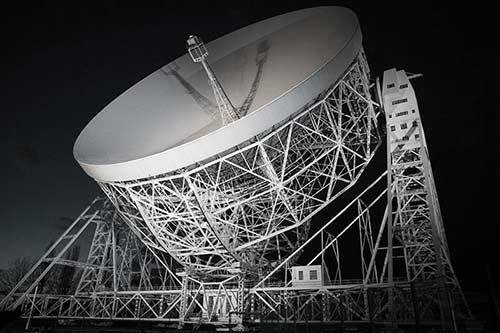
Sir Bernard Lovell
As a physicist and radio astronomer, Sir Bernard Lovell played a key role in constructing the 76-metre Lovell Telescope at the University's Jodrell Bank Centre for Astrophysics. He served as Director of the Observatory from 1945 to 1980, and the telescope is now a symbol of his legacy.
Read the name behind the telescope
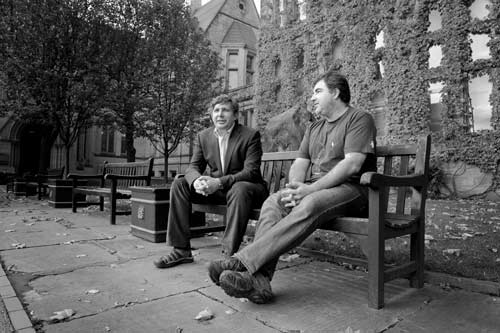
Andre Geim and Konstantin Novoselov
In 2010, the Nobel Prize in Physics was awarded to Andre Geim and Konstantin Novoselov for their groundbreaking research conducted at The University of Manchester that led to the pioneering isolation of graphene.
Read the discovery of graphene


